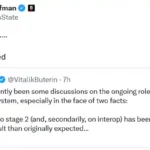From Paris Runways to a Closet Worth Envying
Lauren Sánchez may have turned heads at Paris Haute Couture Week this month, but her fashion credibility didn’t start on the front row in France.
Long before her couture debut, Sánchez had been quietly building one of the most talked-about wardrobes in celebrity circles — and nowhere is that more obvious than in her shoe collection.
From sky-high heels to statement boots, her footwear tells a story of confidence, access, and unapologetic style.
A New Fashion Power Player Steps Forward
Since marrying Amazon founder Jeff Bezos in June, Sánchez has become a regular presence at global fashion events.
But insiders will tell you her taste has always leaned luxe.
Designers, stylists, and fashion watchers have clocked her steady rise as a style force, noting how she mixes boldness with precision rather than chasing trends for attention.
Shoes That Speak Before She Does
Celebrity stylist Kim Appelt says Sánchez’s shoes do more than complete an outfit — they announce who she is.
According to Appelt, every pair signals self-assurance and clarity.
Whether she’s in towering leather boots or minimalist pumps, the message is the same: she knows what works for her and owns it fully.
Two Designers She Rarely Cheats On
If Sánchez has fashion soulmates, they’re Christian Louboutin and Gianvito Rossi.
Over the years, she’s returned to both brands again and again, especially for major appearances. Louboutin’s iconic red soles — often peeking out beneath sleek dresses — have become a signature.
Prices hover around the $1,000 mark, but the real currency is recognizability.
She’s worn nude patent Louboutin So Kate heels with a curve-hugging red gown at the Breakthrough Prize Awards, and black strappy versions for glamorous date nights in New York.
She’s also dipped into the brand’s bolder offerings, including thigh-high leather boots and clear, jelly-like heels that leave little to the imagination.
Why Louboutin Fits Her Image Perfectly
Image strategist Tracy Lamourie explains that Louboutin isn’t subtle — and that’s the point.
The red sole broadcasts luxury, power, and confidence from across the room.
For someone constantly photographed, it’s a visual shorthand that says she’s comfortable being noticed. As Lamourie put it, Sánchez doesn’t need quiet fashion.
Gianvito Rossi for Polished Drama
When Sánchez isn’t in Louboutin, she often reaches for Gianvito Rossi.
The Italian designer offers a similar price point and an equally glamorous edge.
She wore mirrored Flavia pumps with floral detailing to a state dinner honoring Japan, and later chose elegant white satin Rossi heels during her Paris bachelorette celebrations.
The look is refined, but never boring.
Luxury Even When She Goes Casual
Even her off-duty shoes sit firmly in the luxury lane.
Sánchez owns Hermès sandals — particularly the Oran style, which starts around $900 and climbs fast depending on materials.
While vacationing in Saint-Tropez, she paired glittering gray Orans with a bold mini dress and statement jewelry.
According to Lamourie, these choices reflect quiet authority layered beneath playful styling.
For days that call for comfort, Sánchez doesn’t abandon fashion credibility.
Her go-to sneakers are Alexander McQueen platform trainers, priced around $590.
She’s been photographed wearing them in New York and London, effortlessly pairing them with mini dresses, oversized blazers, and, of course, a Hermès Birkin.
Playful Shoes, Total Control
Despite the luxury polish, Sánchez clearly enjoys having fun with footwear.
In Aspen, she stepped out in glossy white Chanel combat boots emblazoned with the brand’s name in silver lettering.
On television appearances, she’s opted for pastel suede pumps with scalloped edges or towering thigh-high boots that demand attention.
Lamourie notes that these playful choices don’t read as chaotic or trend-chasing. Instead, they show intention.
Every bold heel or dramatic boot fits into a larger picture of control — dressing to be seen, not to blend in.
Dressing for Visibility, Not Approval
One of the most striking things about Sánchez’s style is that it isn’t designed to please everyone.
From $2,000 Jimmy Choo stiletto boots worn at book signings to gold sandals paired with red lace dresses, her shoes reinforce a personal aesthetic that prioritizes confidence over consensus.
Where Style Meets Identity
Today, Lauren Sánchez stands at the intersection of fashion, power, and personality.
Her shoe collection isn’t just expensive — it’s expressive.
Each pair acts like punctuation, emphasizing her presence wherever she goes.
And as she continues stepping onto global stages, one thing is clear: her footwear will always arrive before she does.




